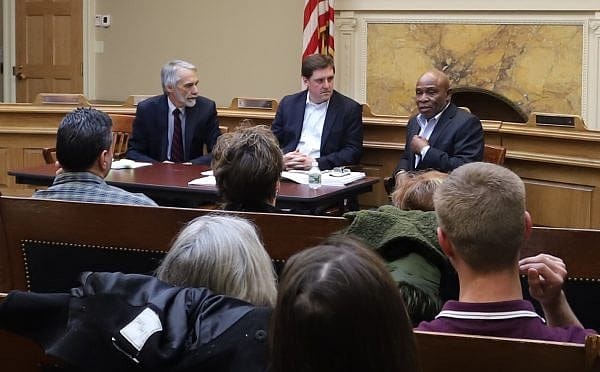No More Life Sentences, Some Massachusetts Legislators Say

By Michael P. Norton
STATE HOUSE NEWS SERVICE
Now that the landmark 2018 criminal justice reform law is on the books, lawmakers are exploring additional ideas and "even harder work," as state Senator Jamie Eldridge (D-Acton) put it Thursday, including the possibility of releasing prisoners serving life-without-parole sentences for the most serious crimes, including murder.
